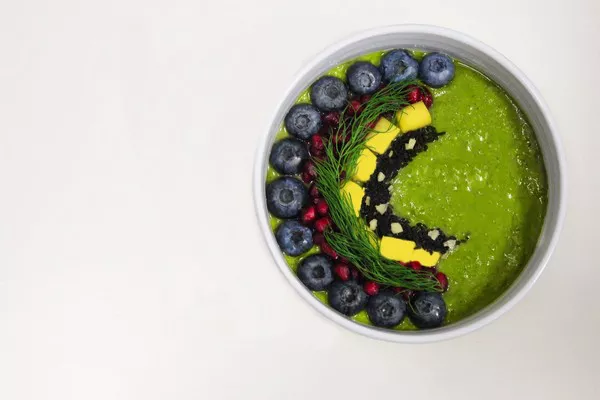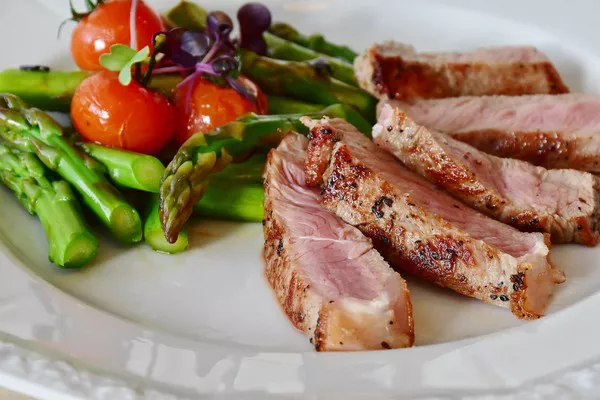When it comes to maintaining optimal health, vitamins play a crucial role. Among the essential vitamins, Vitamin K often takes a backseat to its more famous counterparts like Vitamin C or Vitamin D. However, this underappreciated nutrient is indispensable for various bodily functions. In this comprehensive guide, we will delve into the world of Vitamin K, exploring its types, functions, and most importantly, the foods that are rich in this vital nutrient.
Vitamin K: The Unsung Hero
Vitamin K is a group of fat-soluble vitamins that play a pivotal role in blood clotting, bone health, and other critical physiological processes. There are two primary forms of Vitamin K: Vitamin K1 (phylloquinone) and Vitamin K2 (menaquinone). These vitamins have distinct functions in the body, but they both contribute to overall health and well-being.
Vitamin K1: The Clotting Vitamin
The first member of the Vitamin K family, Vitamin K1, is primarily responsible for blood clotting. This essential function prevents excessive bleeding when we get injured. Vitamin K1 achieves this by assisting in the production of various clotting factors, most notably prothrombin.
So, where can you find this crucial Vitamin K1? Look no further than your leafy greens. Vegetables like kale, spinach, and Swiss chard are abundant sources of Vitamin K1. In fact, the name “Vitamin K” itself is derived from the German word “Koagulationsvitamin,” highlighting its role in coagulation.
Vitamin K2: The Bone Builder
While Vitamin K1 handles blood clotting, Vitamin K2 takes on a different mission – it’s the key player in maintaining bone health. This lesser-known vitamin ensures that calcium is properly utilized within the body, directing it away from arteries and into bones and teeth. By doing so, Vitamin K2 helps reduce the risk of osteoporosis and cardiovascular diseases.
Vitamin K2 is predominantly found in animal-based products and fermented foods. It is synthesized by bacteria, which means that some of the richest sources of Vitamin K2 include cheeses like Gouda and Brie. Natto, a traditional Japanese dish made from fermented soybeans, is also exceptionally high in Vitamin K2.
A Kaleidoscope of Vitamin K-Rich Foods
Now that we’ve explored the two primary forms of Vitamin K let’s embark on a journey through the vast array of foods that can provide you with this essential nutrient. From leafy greens to dairy products, the world of Vitamin K-rich foods is diverse and exciting.
1. Lush Leafy Greens
When it comes to Vitamin K1, leafy greens are the undisputed champions. These vegetables are not only rich in this vitamin but also pack a plethora of other nutrients that contribute to overall health. Here are some of the top contenders:
Kale: Often referred to as a superfood, kale is a Vitamin K powerhouse. Just one cup of cooked kale contains over 1000% of the recommended daily intake of Vitamin K1.
Spinach: Spinach is another green giant when it comes to Vitamin K1 content. It’s not only delicious in salads but also versatile in various dishes.
Collard Greens: Popular in Southern cuisine, collard greens are not only tasty but also a great source of Vitamin K1.
Broccoli: This cruciferous vegetable is not only rich in Vitamin K1 but also delivers a healthy dose of fiber and antioxidants.
Swiss Chard: With its vibrant colors, Swiss chard is a visual treat and a nutritional powerhouse, offering a substantial amount of Vitamin K1.
Incorporating these leafy greens into your diet is a smart way to ensure you’re getting an ample supply of Vitamin K1.
2. Dairy Delights
As we shift our focus to Vitamin K2, the spotlight turns to dairy products. While dairy may not be suitable for everyone due to lactose intolerance or dietary preferences, it’s an excellent source of Vitamin K2 for those who can consume it. Here are some dairy-based foods rich in Vitamin K2:
Cheeses: Certain cheeses, especially those that are aged or fermented, are high in Vitamin K2. Gouda, Brie, and Blue Cheese are prime examples.
Egg Yolks: Egg yolks contain moderate amounts of Vitamin K2, making them a valuable addition to your diet.
Butter: Grass-fed butter is a good source of Vitamin K2 and is favored by those following ketogenic diets.
3. Fermented Delicacies
Fermented foods have been gaining popularity for their numerous health benefits, and Vitamin K2 content is one of them. Here are some fermented foods that can boost your Vitamin K2 intake:
Natto: As mentioned earlier, natto is a Japanese dish made from fermented soybeans. It’s not only an excellent source of Vitamin K2 but also a rich source of probiotics.
Sauerkraut: This fermented cabbage dish is a tasty way to increase your Vitamin K2 intake while also promoting gut health.
Kimchi: A staple in Korean cuisine, kimchi is another fermented delight that can contribute to your Vitamin K2 levels.
4. Animal-Based Sources
Aside from dairy products, animal-based foods also provide Vitamin K2. While not as rich as some other sources, they can still make a valuable contribution to your Vitamin K intake. Here are a few examples:
Liver: Liver, particularly goose liver, is relatively high in Vitamin K2. It’s a delicacy in many cuisines and can be enjoyed in various forms.
Chicken: Dark meat chicken contains more Vitamin K2 compared to white meat. So, next time you’re having chicken, consider opting for the leg or thigh.
Beef: Certain cuts of beef, such as ground beef, contain moderate amounts of Vitamin K2.
5. Plant-Based Alternatives
For those who follow a vegetarian or vegan diet, there are plant-based alternatives to Vitamin K2-rich foods. While these sources may not be as potent, they can still contribute to your Vitamin K intake:
Soybean Oil: Soybean oil is one of the few plant-based sources of Vitamin K2, though it should be consumed in moderation due to its high calorie content.
Miso: This fermented soybean paste is a common ingredient in Japanese cuisine and contains a small amount of Vitamin K2.
6. Herbs and Spices
Surprisingly, some herbs and spices can also provide a dose of Vitamin K1. While they may not be a primary source, they can certainly complement your Vitamin K intake:
Basil: This aromatic herb contains a small amount of Vitamin K1 and is used in various culinary dishes.
Parsley: Fresh parsley adds flavor and a touch of Vitamin K1 to your meals.
Vitamin K Supplements: A Last Resort
While it’s always best to obtain your nutrients from whole foods, there are situations where Vitamin K supplements may be necessary. Individuals with certain medical conditions, such as malabsorption disorders or those taking specific medications, may require supplements to meet their Vitamin K needs. However, it’s essential to consult with a healthcare professional before adding any supplements to your routine.
Balancing Your Vitamin K Intake
As with any nutrient, balance is key. Too much or too little of Vitamin K can have adverse effects. Excessive Vitamin K intake can interfere with blood-thinning medications like Warfarin, while a deficiency can lead to increased bleeding tendencies. Therefore, it’s essential to be mindful of your Vitamin K intake, especially if you have underlying medical conditions.
Conclusion
In conclusion, Vitamin K may not always receive the same level of attention as other vitamins, but its role in maintaining health and well-being is undeniable. Whether you’re looking to support blood clotting with Vitamin K1 or promote bone health with Vitamin K2, there’s a wide variety of foods to choose from.
Leafy greens, dairy products, fermented foods, and even certain animal-based sources all offer the valuable gift of Vitamin K. By incorporating these foods into your diet, you can ensure that you’re harnessing the power of this unsung hero of the vitamin world. Remember, a balanced and diverse diet is the key to overall health, and Vitamin K is an essential piece of that puzzle. So, go ahead and embrace the power of Vitamin K to lead a healthier and more vibrant life.
[inline_related_posts title=”You Might Be Interested In” title_align=”left” style=”list” number=”6″ align=”none” ids=”2262,2280,766″ by=”categories” orderby=”rand” order=”DESC” hide_thumb=”no” thumb_right=”no” views=”no” date=”yes” grid_columns=”2″ post_type=”” tax=””]



































